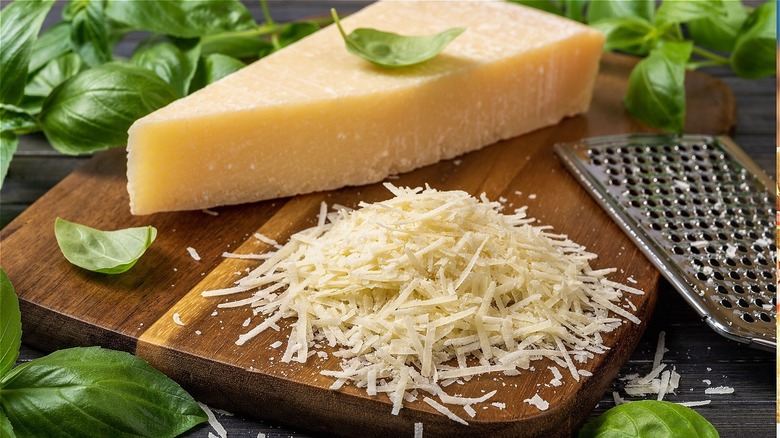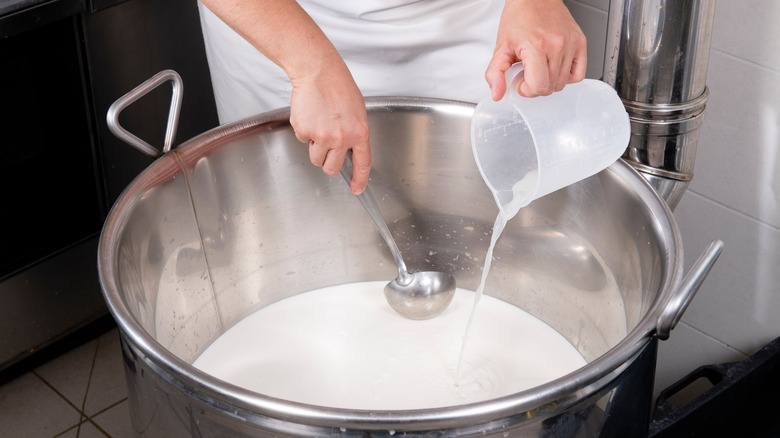The Makings Of Authentic Parmesan Cheese Is Nightmare Fodder
Whether you're topping off your homemade spaghetti, assembling a charcuterie board, or just eating it by the handful, authentic Parmesan-Reggiano is a popular, versatile, and downright delicious cheese. Unlike some cheeses that lead to high cholesterol and high blood pressure when consumed in excess, Parmesan boasts a wide range of health benefits. High-quality Parmesan is high in protein and probiotics, and lower in calories and fat than other popular cheeses.
What's not to love, right? Well, making cheese isn't always a sightly process. Although it's one of life's greatest pleasures, making cheese involves aged milk and a grisly assortment of bacteria, yeasts, and fungi – not exactly the ingredients that come to mind when we think of tasty foods.
If we didn't lose you at bacteria and fungi, you might want to strap in — especially if you're a fan of authentic Parmesan. Turns out, that delicious block of Parm in your fridge was made with fluids found in a baby cow's stomach.
There's a reason authentic Parmesan is made with such an unappetizing ingredient
Okay, don't panic — Parmesan isn't just a calf's stomach bile. Parmesan cheese is made primarily using a combination of whole and naturally skimmed (adult) cow milk. Then, the milk is aged for at least one year to before it's ready to hit the market for consumption. But it's not that simple — this isn't mozzarella.
Traditionally, Parmesan cheese is combined with a substance found in the stomach of baby animals called rennet. In fact, genuine Parmesan-Reggiano must employ rennet in order to use the name. Without rennet, it's not authentic Parmesan. Unfortunately, the rennet extraction process can't be done effectively with a living calf. The extraction process typically takes place at a slaughterhouse where the calves are harvested for their meat, and subsequently, their rennet. Sorry, vegetarians, you might want to remove Parmesan from your diet.
Rennet is an enzyme that helps bring Parmesan cheese together. When combined with the aged cow milk, rennet helps coagulate the milk into curds that are eventually formed into solid blocks of Parmesan cheese.
Although it's a bit unsettling, without rennet, Parmesan wouldn't be Parmesan.

